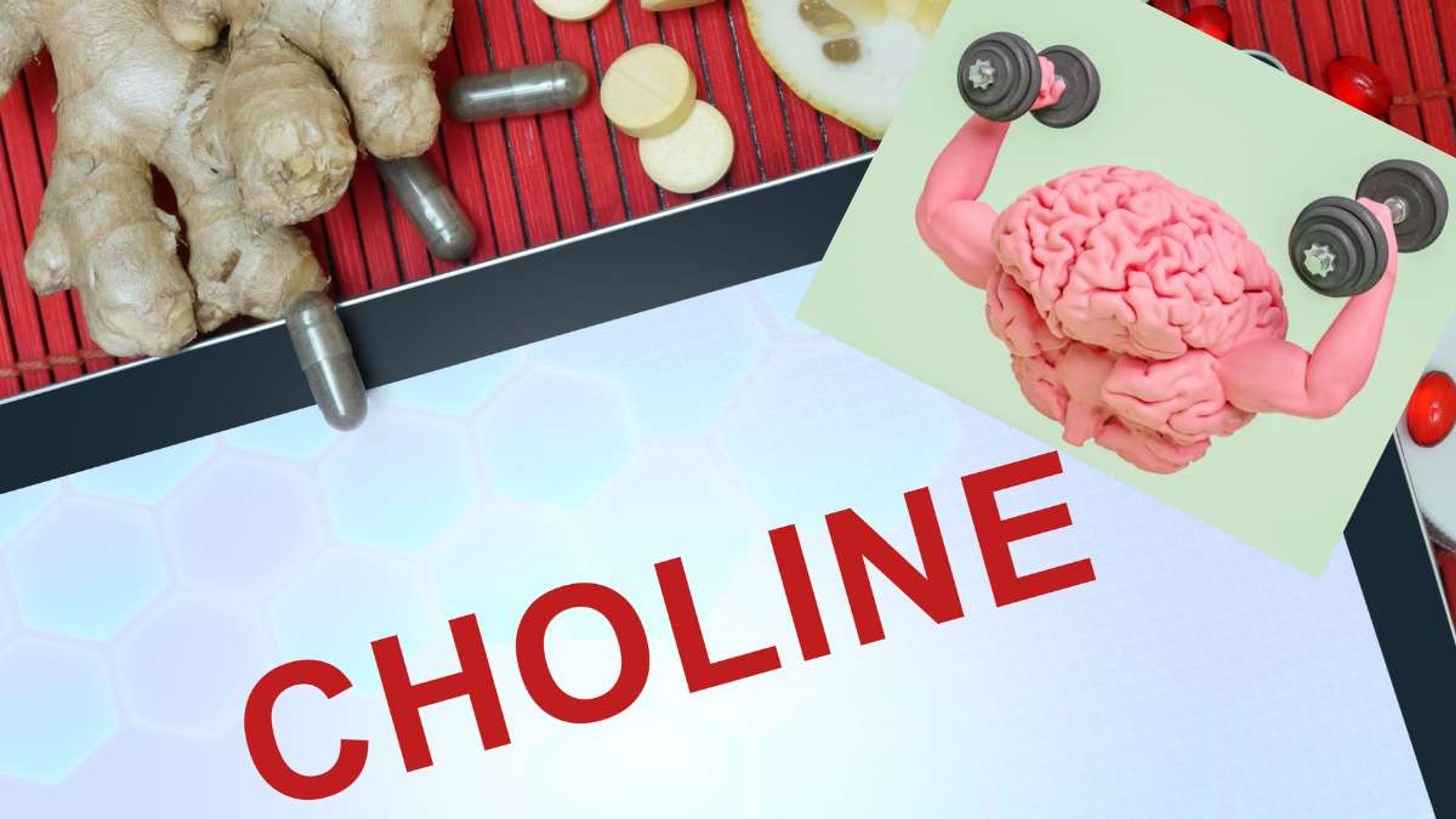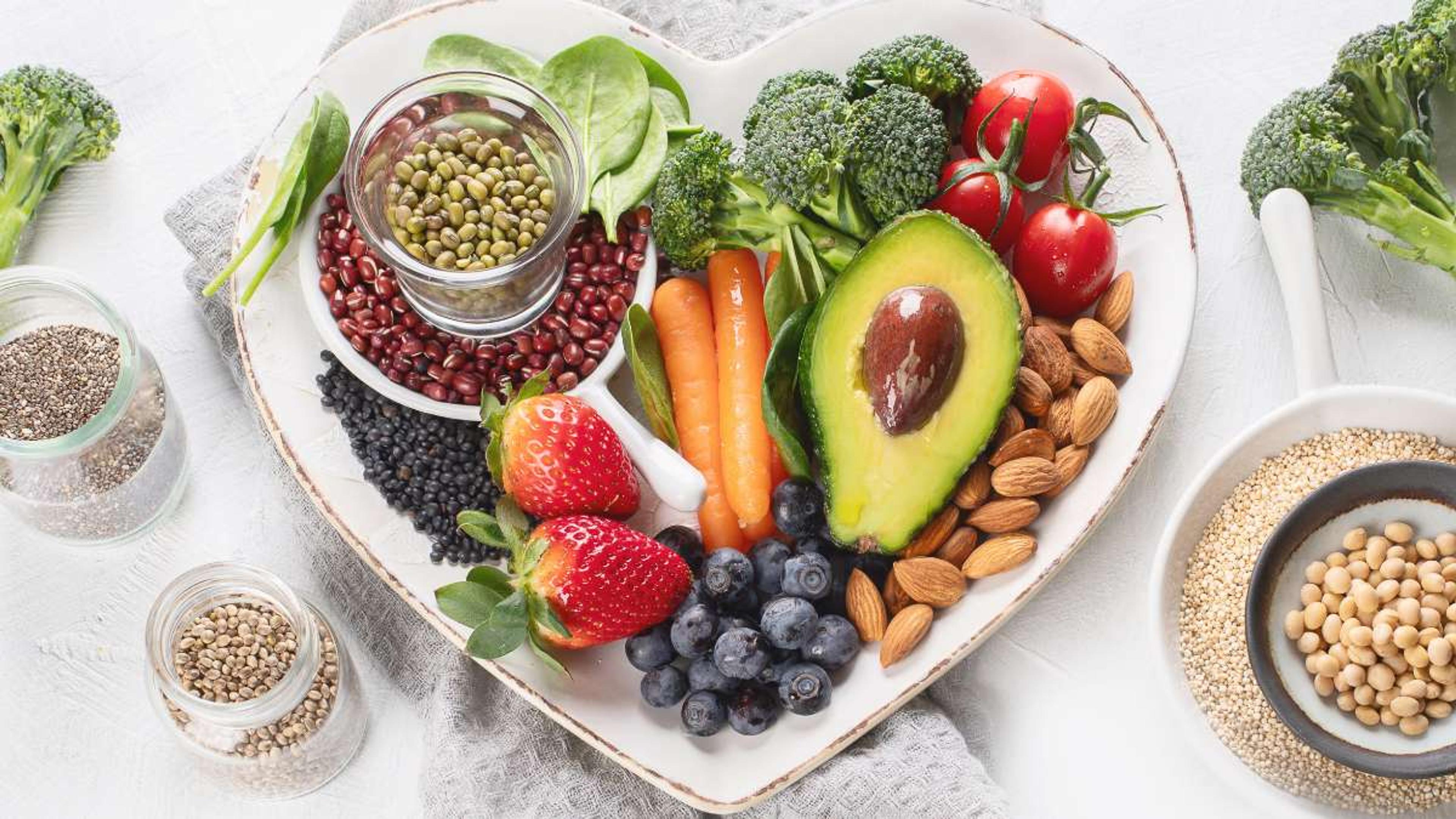Choline Rich Foods For Vegetarians: Boost Brain Health

- Key Takeaways
- What is Choline, Daily Nutritional Need and why is it important?
- List of Choline-Rich Plant-Based Foods
- Choline Supplements for Plant-Based Diets
- Health Benefits and Symptoms of Deficiency of Choline
- How to Incorporate Choline-Rich Foods into a Vegetarian Diet
- Cooking and Preparation Tips to enhance absorption and retain choline content
- Conclusion
- FAQs
Ever wondered how to enhance your brain health while sticking to a vegetarian diet? Choline, an essential nutrient majorly known for its power in boosting brain function, is abundant in many plant-based foods.
This blog will serve as your comprehensive guide on including choline-rich foods into your vegetarian regime, ensuring that you get the recommended daily intake with ease. Read on and let's explore this nutritious realm of plant-based wonders together!
Key Takeaways
- Choline is an essential nutrient that plays a crucial role in maintaining brain health and function.
- Vegetarians can incorporate choline-rich foods into their diet, such as legumes, cruciferous vegetables, whole grains, nuts, seeds, fruits, and fortified plant-based products.
- Choline deficiency can lead to symptoms like fatigue, memory loss, muscle weakness, and difficulty concentrating.
- Including choline-rich foods in a vegetarian diet can provide numerous health benefits for optimal brain health.
What is Choline, Daily Nutritional Need and why is it important?

Choline, an essential nutrient, plays a crucial role in maintaining robust brain health. It aids communication between neurons and forms cell membranes, fundamental components of overall brain function. Choline and brain function go hand in hand as this nutrient is involved in the production of acetylcholine, a neurotransmitter responsible for memory and cognitive function.
Moreover, choline supports lipid metabolism and liver health.
The daily nutritional need for choline varies between individuals. For instance, adequate intake (AI) levels set by the National Health Institute (NIH), state that adult men should aim for 550 mg per day while women should strive for 425 mg.
Pregnant women have higher needs; about 450-550mg per day is recommended to support optimal fetal development while breastfeeding mothers require around 550 mg due to increased demands from milk production.
The importance of getting enough choline each day cannot be overstressed. Without proper amounts of this nutrient in your diet, you expose yourself to certain risks such as heart disease or even neurological conditions like dementia and Alzheimer's disease.
So it's paramount that individuals monitor their daily intake - especially strict vegetarians who tend not to consume foods high in choline like eggs or milk - since they run a risk of inadequate intake which could potentially lead to deficiency symptoms. It is recommended that adults consume at least 425 mg of choline per day to maintain optimal health.
Nutrient-rich foods like broccoli, almonds, kidney beans amongst others help fulfill the required nutritional quota hence finding ways of incorporating these into meals becomes worthwhile when striving towards achieving balanced nutrition goals.
List of Choline-Rich Plant-Based Foods
Here is a list of choline-rich plant-based foods that can boost brain health for vegetarians: legumes (chickpeas, lentils, black beans, kidney beans, edamame, soybeans), cruciferous vegetables (broccoli, cauliflower, Brussels sprouts, cabbage), whole grains (quinoa, brown rice, oats, barley), nuts (almonds, peanuts, pistachios, cashews), seeds(sunflower seeds, flaxseeds, chia seeds, pumpkin seeds), fruits( oranges, bananas, avocado, guava), vegetables( spinach, asparagus, potatoes, green peas) and fortified plant-based foods such as breakfast cereals and plant milks.

Legumes (Chickpeas, Lentils, Black beans, Kidney beans)
Legumes offer a host of choline-rich options for a brain-boosting vegetarian diet. These include chickpeas and lentils, both packed with protein, fiber, and important nutrients that support overall health.
Black beans and kidney beans also serve as excellent sources of choline. Notably, they provide generous amounts of fiber, protein and potassium vital for effective body metabolism.
On top of their rich nutrient profile, legumes come with numerous health benefits. Regular intake may significantly reduce risk factors associated with heart disease and high blood pressure because these plant-based foods have low glycemic indices which help manage blood sugar levels effectively. Additionally, legumes are one of the most choline-rich foods, which is important for brain health and development.
An added bonus is their calcium content which contributes to strong bones while the folate in them supports cellular growth and function.
Cruciferous Vegetables (Broccoli, Cauliflower, Brussels sprouts, Cabbage)
Cruciferous vegetables, including broccoli, cauliflower, Brussels sprouts, and cabbage, are excellent sources of choline. These nutritional powerhouses not only boost your choline intake but also bring a wealth of health benefits to the table.
Being high in fiber, cruciferous vegetables aid digestive health while their anti-cancer properties can contribute to cancer prevention. The versatility of these veggies makes them easy to incorporate into any vegetarian or vegan diet.
From steaming Brussel sprouts as a side dish to adding chopped cabbage in salads or stir-fry dishes - there are plenty of ways you can enjoy these veggies and meet your daily choline needs effortlessly.
To maximize the amount of choline from cruciferous vegetables such as cauliflower or broccoli is by consuming them raw since cooking can lead to nutrient loss. But if you're not a fan of raw veggies fear not! Roasting broccoli at high heat helps retain most nutrients and offers an appealing crunchy texture with caramelized edges that many find delicious.
Boosting your brain health doesn't have to be boring; it's an opportunity for culinary exploration! So why wait? Head over to your nearest grocery store today and grab some bags full of brussels sprouts, cabbage or any other member from this wholesome family that tickles your taste buds!
Whole Grains (Quinoa, Brown rice, Oats, Barley)
Whole grains like quinoa, brown rice, oats, and barley are not only delicious but also great for your brain health. These whole grains are rich in B vitamins, which help reduce inflammation in the brain.
Quinoa is especially beneficial as it is a choline-rich plant-based food that can contribute to brain health. It is also a complete protein and contains a full amino acid profile as a plant food.
Including whole grains like brown rice, corn, quinoa, and oats in your diet can be an easy way to incorporate healthy brain food snacks into your routine.
Nuts (Almonds, Peanuts, Pistachios, Cashews)
Almonds, peanuts, pistachios, walnuts and cashews are all choline-rich nuts that can be beneficial for brain health in vegetarians. These nuts contain high levels of choline, which is essential for the production of acetylcholine, a neurotransmitter involved in memory and cognitive function.
In addition to supplying choline, almonds also offer cancer-fighting properties and promote heart health. Including these nuts as part of a vegetarian diet can help ensure an adequate intake of this important nutrient for optimal brain health.
Seeds (Sunflower seeds, Flaxseeds, Chia seeds, Pumpkin seeds)
Sunflower seeds, flaxseeds, chia seeds, and pumpkin seeds are all excellent sources of nutrients that can benefit brain health. Sunflower seeds contain choline, which supports brain function and contributes to the production of acetylcholine, a neurotransmitter essential for memory and learning.
Additionally, sunflower seeds are rich in selenium, which has been linked to improved cognitive function.
Flaxseeds are high in omega-3 fatty acids and lignans, both of which have anti-inflammatory properties that can protect the brain from oxidative stress. Omega-3 fatty acids have also been associated with a reduced risk of cognitive decline.
Chia seeds offer a combination of omega-3 fatty acids, fiber, and antioxidants that promote brain health. These tiny seeds can support memory and cognition while providing essential nutrients for overall well-being.
Fruits (Oranges, Bananas, Avocado, Guava)
Oranges, bananas, avocado, and guava are fruits that can contribute to your choline intake in a plant-based diet. Although there is no specific data on the choline content of these fruits, they offer other valuable nutrients for brain health.
Avocado, for example, is rich in vitamins B6, C, E, K, and folate. Bananas and oranges are excellent sources of potassium which supports brain function. Including these fruits in your diet can provide a variety of important vitamins and minerals to support overall cognitive health.
Vegetables (Spinach, Asparagus, Potatoes, Green peas)
Spinach, asparagus, potatoes, and green peas are all excellent choices for boosting brain health due to their high choline content. Choline is an essential nutrient that plays a vital role in brain development and function.
These vegetables provide a good amount of choline, which can help support the nervous system and enhance cognitive abilities. Including these vegetables in your diet can be a tasty way to ensure you're getting enough choline to support optimal brain health.
Fortified Plant-Based Foods (Plant milks, breakfast cereals, nutritional yeast)
Fortified plant-based foods, including plant milks, breakfast cereals, and nutritional yeast, are excellent sources of choline for vegans. These fortified products have been specifically designed to provide essential nutrients, including choline, that may be lacking in a plant-based diet.
Plant milks like soy milk or almond milk can offer a good amount of choline, while fortified breakfast cereals are another convenient option. Nutritional yeast is also worth mentioning as it is not only a vegan source of B vitamins but is also rich in choline.
By incorporating these fortified plant-based foods/dietary supplements into their diet, vegans can ensure they are getting enough choline to support overall brain health without relying on animal products.
Choline Supplements for Plant-Based Diets

Choline supplements can be a helpful option for individuals following plant-based diets who may struggle to meet their daily choline needs.
Consider adding these supplements to your diet:
- Choline Bitartrate: This is the most common form of choline supplement and is readily available.
- Alpha-GPC: This supplement is known for its brain-boosting benefits and can help increase choline levels.
- CDP-Choline: Another popular choice, this supplement can enhance memory and cognition.
Remember, it's important to consult with a healthcare professional or registered dietitian before starting any new supplementation regimen.
Health Benefits and Symptoms of Deficiency of Choline
Health Benefits

Choline, an essential nutrient found in various plant-based foods, offers several health benefits. Adequate intake of choline supports brain function and helps with memory formation and learning.
It also plays a role in regulating the nervous system and promoting healthy brain development. Choline can aid in reducing inflammation and preventing chronic diseases such as heart disease and dementia.
Additionally, choline is involved in metabolism and energy production, making it important for overall physical health.
Including choline-rich foods like legumes, cruciferous vegetables, whole grains, nuts, seeds, fruits, and fortified plant-based products in your vegetarian diet can help you meet your daily requirement of this essential nutrient.
Symptoms of Deficiency

Choline deficiency can have several negative effects on the body. One of the most common symptoms is muscle damage, which can lead to weakness and pain. Additionally, individuals with low choline levels may experience liver problems, such as fatty liver disease.
Choline plays a crucial role in brain function, so deficiency can also impact cognitive health. Symptoms may include memory issues, difficulty concentrating, and mood changes. It's important to recognize these signs and ensure adequate choline intake through a balanced diet or supplements to maintain overall well-being.These symptoms may potentially be a signs of Alzheimer's disease, as choline deficiency has been linked to cognitive decline and memory loss.
Moreover, insufficient intake of choline can affect the nervous system, leading to issues like mood disorders, depression, and anxiety. It can also impact cardiovascular health by contributing to high blood pressure and an increased risk of heart disease.
To prevent these problems and ensure optimal brain function and overall health, incorporating choline-rich foods into your vegetarian diet is crucial.
How to Incorporate Choline-Rich Foods into a Vegetarian Diet
To incorporate choline-rich foods into a vegetarian diet, try the following:
- Include legumes such as chickpeas, lentils, black beans, and kidney beans in your meals. They provide a good amount of choline.
- Add cruciferous vegetableslike broccoli, cauliflower, Brussels sprouts, and cabbage to your stir-fries or salads.
- Opt for whole grains like quinoa, brown rice, oats, and barley as part of your main dishes or side dishes.
- Snack on nuts like almonds, peanuts, pistachios, and cashews which are not only rich in healthy fats but also contain choline.
- Sprinkle seeds such as sunflower seeds, flaxseeds, chia seeds, and pumpkin seeds on top of salads or yogurt for an extra nutrient boost.
- Enjoy fruits like oranges, bananas, avocadoes, and guava which also contribute to your choline intake.
- Include vegetables like spinach, asparagus, potatoes, and green peas in your meals for added choline content.
- Consider fortified plant-based foods such as plant milks (e.g. soy milk), breakfast cereals enriched with vitamins and minerals (including choline), and nutritional yeast.
Cooking and Preparation Tips to enhance absorption and retain choline content
- Include choline-rich foods in your meals by adding boiled or poached eggs to salads or sandwiches.
- Opt for cooking methods that preserve the choline content, such as steaming or baking instead of frying.
- Make use of marinades and dressings made with lemon juice or vinegar, as these can enhance the bioavailability of choline.
- Sprinkle ground flaxseed over yogurt, smoothies, or cereal to increase your intake of choline.
- Try incorporating tofu into stir-fries and curries for a plant-based source of choline.
- Roast cruciferous vegetables like broccoli and cauliflower to bring out their flavors while retaining their choline content.
- Snack on roasted almonds, peanuts, or pumpkin seeds for a quick boost of choline throughout the day.
Conclusion
Incorporating choline-rich foods into a vegetarian diet is crucial for boosting brain health. By including plant-based sources such as legumes, cruciferous vegetables, whole grains, nuts, seeds, and fortified plant-based foods in their meals, vegetarians can ensure they are getting an adequate intake of this essential nutrient.
With the numerous health benefits and symptoms of deficiency associated with choline, it's important for vegetarians to prioritize these food options to support their cognitive function and overall brain health.
FAQs
1. What are some choline-rich foods that vegetarians can incorporate into their diet?
Vegetarians can boost their brain health with choline-rich foods such as eggs, tofu, quinoa, broccoli, peanuts, and soy milk.
2. Why is choline important for brain health?
Choline plays a crucial role in brain development and function. It helps in the synthesis of neurotransmitters and the formation of cell membranes, which are essential for optimal cognitive function.
3. Can vegetarians get enough choline from plant-based sources alone?
While it is possible to obtain choline from plant-based sources, it may be more challenging for vegetarians to meet their recommended daily intake compared to those who consume animal products. Therefore, incorporating a variety of choline-rich foods into their diet is important.
4. Are there any potential risks or side effects associated with consuming too much choline?
Consuming excessive amounts of choline through supplements or extremely high intake of certain foods may lead to adverse effects such as fishy body odor or gastrointestinal distress. However, it is rare to reach these levels through regular dietary consumption alone. As always, moderation is key when it comes to nutrient intake.

